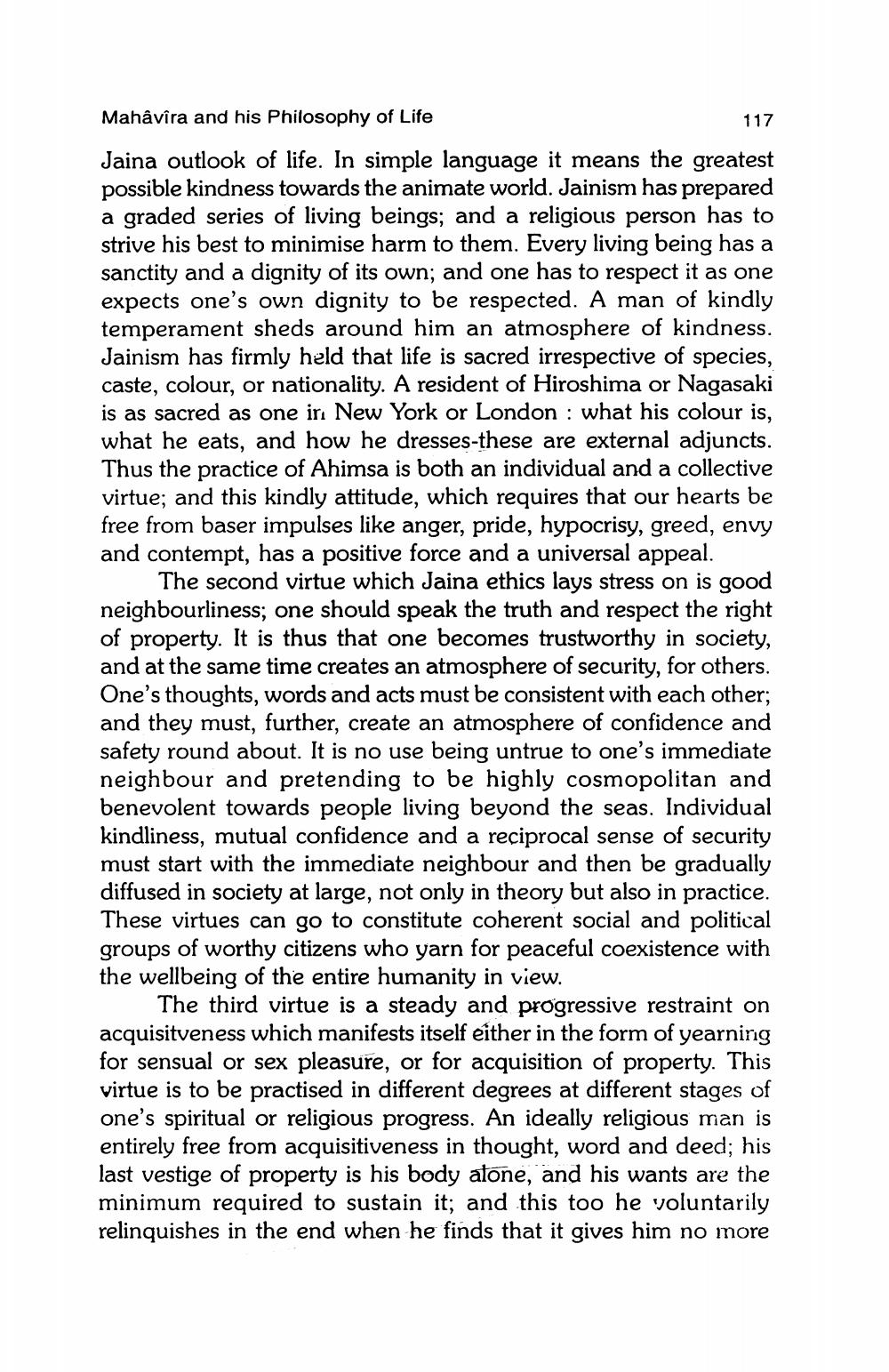________________
Mahâvîra and his Philosophy of Life
117
Jaina outlook of life. In simple language it means the greatest possible kindness towards the animate world. Jainism has prepared a graded series of living beings; and a religious person has to strive his best to minimise harm to them. Every living being has a sanctity and a dignity of its own; and one has to respect it as one expects one's own dignity to be respected. A man of kindly temperament sheds around him an atmosphere of kindness. Jainism has firmly held that life is sacred irrespective of species, caste, colour, or nationality. A resident of Hiroshima or Nagasaki is as sacred as one in New York or London : what his colour is, what he eats, and how he dresses-these are external adjuncts. Thus the practice of Ahimsa is both an individual and a collective virtue; and this kindly attitude, which requires that our hearts be free from baser impulses like anger, pride, hypocrisy, greed, envy and contempt, has a positive force and a universal appeal.
The second virtue which Jaina ethics lays stress on is good neighbourliness; one should speak the truth and respect the right of property. It is thus that one becomes trustworthy in society, and at the same time creates an atmosphere of security, for others. One's thoughts, words and acts must be consistent with each other; and they must, further, create an atmosphere of confidence and safety round about. It is no use being untrue to one's immediate neighbour and pretending to be highly cosmopolitan and benevolent towards people living beyond the seas. Individual kindliness, mutual confidence and a reciprocal sense of security must start with the immediate neighbour and then be gradually diffused in society at large, not only in theory but also in practice. These virtues can go to constitute coherent social and political groups of worthy citizens who yarn for peaceful coexistence with the wellbeing of the entire humanity in view.
The third virtue is a steady and progressive restraint on acquisitveness which manifests itself either in the form of yearning for sensual or sex pleasure, or for acquisition of property. This virtue is to be practised in different degrees at different stages of one's spiritual or religious progress. An ideally religious man is entirely free from acquisitiveness in thought, word and deed; his last vestige of property is his body alone, and his wants are the minimum required to sustain it; and this too he voluntarily relinquishes in the end when he finds that it gives him no more




